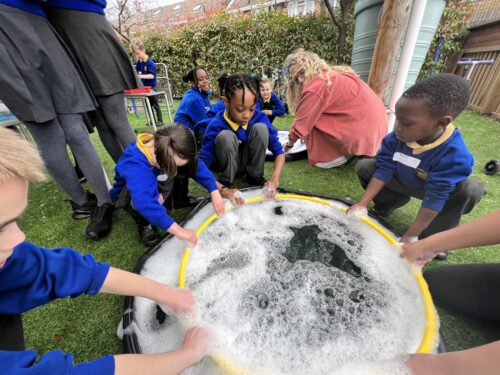Our Curriculum Approach

At St. Mark’s, we pride ourselves on the chances we give to our children. Central to our whole school Christian Vision and school motto, ‘Every Child, Every Chance, Every Day’, is our cross curricular, community orientated and bespoke curriculum. Although following the National Curriculum’s stated aims and objectives, we have created a personalised syllabus, which represents our children, our school, our faiths and our families. We know that life long learning begins with a lifelong curriculum.
Raising standards in our school must be focused on the classroom. Continued and sustained improvement is dependent upon improving the quality of teaching and learning. Across our school the expectation is that all pupils are provided with high quality learning experiences that lead to consistently high levels of pupil achievement and attainment.
Our Curriculum Intent

We believe in the concept of lifelong learning and the idea that both adults and children learn new things every day. We maintain that learning should be a rewarding and enjoyable experience for everyone; it should be creative and enjoyable. Through our teaching we equip children with the skills, knowledge and understanding necessary to be able to make informed choices about the important things in their lives. We believe that appropriate teaching and learning experiences help children to lead happy and rewarding lives.
By adopting a whole school personailsed curriculum and approach to teaching and learning across our school, we aim to:
- promote the spiritual, moral, cultural, mental and physical development of pupils within our school;
- prepare pupils at the school for the opportunities, responsibilities and experiences of later life;
- enable children to become confident, resourceful, enquiring and independent learners;
- foster children’s self-esteem and help them build positive relationships with other people;
- develop children’s self-respect and encourage children to respect the ideas, attitudes, values and feelings of others;
- show respect for all cultures and, in so doing, promote positive attitudes towards other people;
- enable children to understand their community and help them feel valued as part of this community;
- help children grow into reliable, independent and positive citizens.
